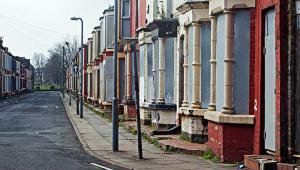The Beatles famously knew how many holes it took to fill the Albert Hall.
Here in modern-day Liverpool, we know how many potholes we need to fill - £400m worth of them.
The problem is we only have a budget of £4m to do it with. Furthermore, our recent government grant has given us just £400,000 extra.
So we only had 1% of the money we need to do the job to begin with – and we’re being given a paltry 0.1% extra.
It’s a familiar tale across the country, with most councils struggling to maintain basic infrastructure at the same time as averting a funding crisis with their frontline services.
We’ve had two thirds of our government funding cut since 2010 – £444m – which means we have the impossible task of juggling immediate pressures with long-term capital investment, while at the same time trying to develop new sources of revenue.
What’s more, it’s clear the chill winds of austerity will continue to blow.
That was the message from chancellor Philip Hammond in his spring statement. There is no reprieve for local authorities, despite Tory-controlled Northamptonshire County Council actually going bust.
That’s before we get onto the structural crisis in adult social care funding – and the £2bn deficit that has now opened up in children’s services provision.
It’s abundantly clear that with Brexit dominating the domestic political agenda the needs of hard-pressed councils – especially larger urban authorities – are way down the ministerial pecking order.
Hope springs eternal that the new secretary of state, James Brokenshire, will see sense and recognise that austerity has cut into the very fabric of our local services.
But we cannot sit on our hands waiting to be rescued by a friendlier climate in Westminster. We must learn to help ourselves.
So that’s what we’re doing in Liverpool.
Using our capital borrowing powers, we are planning to help Everton football club build a new fit-for-purpose stadium, which will form the centrepiece of a much larger regeneration of 125-acres of our dilapidated north docks area, which have lain dormant since the 1980s.
The revenue stream that will be created – around £7m a year for 25 years – will be ploughed straight back into frontline services.
We have also launched a new municipal housing company – ‘Foundations’ – in order to rebalance the housing market in Liverpool. We need a better housing mix across the city to improve the sustainability of our finances.
More than two thirds of the properties in the city are in Band A. This means that for every 1% of council tax, we raise just £1.6m.
Again, Whitehall is as much use as a concrete life raft.
So we will use £50m of capital borrowing to buy, renovate and build homes across the city, addressing affordability and improving the mix of housing.
Our bigger ambition is to scale up this investment ten fold over the next few years. We are also developing innovative ways of helping families accrue the deposit needed to buy their first home.
Social justice and economic efficiency working hand in hand.
Our plans – although ambitious – are also prudent, with auditors recently reporting that we have a prudent level of debt and strong internal procedures for managing our finances.
Which brings me back to potholes.
We have just announced a £230m investment programme to deliver a massive step-change in the quality of our roads network.
This work needs to happen and the longer it is left, the more we end up paying out in compensation claims to drivers. The programme will transform the quality of our roads, but it will also create hundreds of jobs and apprenticeships in the process.
Despite the government’s indifference towards local government, councils need to be ambitious in finding practical solutions to the problems that austerity has left us with, as we seek to protect the vulnerable and discharge our broader responsibilities.
Given they have left us little option, we need to learn to be bold ourselves.



















